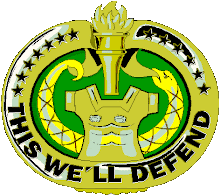Ignorant Voters
The ignorant American voter
By Jeff Jacoby October 24, 2004
NOT LONG after Dr. Johnson's landmark "Dictionary of the English Language" appeared in 1755, a woman demanded to know why he had defined "pastern" as the knee of a horse. "Ignorance, madam," Johnson replied, "pure ignorance."
We should all be so ignorant. Johnson may not have known a pastern from a fetlock, but he knew enough to write an entire dictionary -- all 2,300 pages and 43,000 entries of it -- single-handedly. Alas, our own ignorance is of an entirely different order. Consider, as Ilya Somin has been considering this election season, what Americans don't know about politics and public policy.
Somin, a law professor at George Mason University, observes in a new study for the Cato Institute that voters tend to be "abysmally ignorant of even very basic political information." This may not be news to scholars, who have documented it in depressing detail, "but the sheer depth of most individual voters' ignorance is shocking to observers not familiar with the research."
He offers some recent illustrations. According to polls taken this year, nearly 65 percent of the public doesn't know that Congress has banned partial-birth abortion. Seventy percent is unaware that a massive drug benefit has been added to Medicare. At least 58 percent say they have heard "nothing" or "not much" about the Patriot Act, notwithstanding the enormous amount of coverage the controversial law has drawn.
This is not a new problem. As Cold War tensions bristled in 1964, only 38 percent of the public knew that the Soviet Union was not a member of NATO. In 1970, only 24 percent could identify the secretary of state. In 1996, The Washington Post reported that 67 percent of Americans couldn't name their congressman and 94 percent had no idea that William Rehnquist was the chief justice of the United States. Only 26 percent knew that senators serve six-year terms, and 73 percent didn't know that Medicare costs more than foreign aid.
Gallup found in January 2000 that while 66 percent of the public could name the host of "Who Wants to be a Millionaire?" only 6 percent knew the name of the speaker of the House. Last year, a Polling Company survey found that 58 percent of Americans could not name a single federal Cabinet department.
The ignorant can be found in the highest reaches of academe. Of more than 3,100 Ivy League students polled for a University of Pennsylvania study in 1993, 11 percent couldn't identify the author of the Declaration of Independence, half didn't know the names of their US senators, and 75 percent were unaware that the classic description of democracy -- "government of the people, by the people, and for the people" -- is from the Gettysburg Address.
With so many Americans so clueless when it comes to government and public affairs, is it any wonder that political campaigns are so shrill and shallow? Or that candidates speak to voters primarily through TV spots intended to malign the other candidate's reputation? Or that presidential "debates" limit answers to 90 seconds and bar the contenders from engaging in actual discussion? When voters are unwilling to put any effort into learning about the issues of the day, it should come as no surprise that campaign discussions rarely move beyond vacuous soundbites -- "tax breaks for the rich," "freedom is on the march," "wrong war, wrong place, wrong time."
Somin suggests that widespread political ignorance may be, in one sense, "rational": Since no individual's vote is ever likely to be decisive, no voter has an incentive to work hard at acquiring enough knowledge to make an informed choice. But by that argument, voters shouldn't bother showing up on Election Day, either. Many don't, of course, and we hear endlessly about the need to increase voter turnout. But more alarming than the tens of millions of non-voting adults are the tens of millions of adults who do vote despite knowing next to nothing about the candidates and the issues.
It was not ever thus. A century and a half ago, ordinary Americans grappled with public controversies at a level of sophistication that would be unthinkable today.
In 1858, tens of thousands of Illinois voters, many unschooled, crowded fairgrounds and public squares to watch Democratic Senator Stephen Douglas debate his Republican challenger, former congressman Abraham Lincoln. The topics they wrestled with were among the weightiest in US history -- the expansion of slavery, the authority of the Supreme Court, the limits of popular sovereignty. The candidates spoke not for 90 seconds at a time, but for 90 minutes at a time. There were no spin doctors, no instant polls, no TV talking heads -- only thoughtful candidates and serious voters and the clash of ideas in the public arena.
The dumbing-down of our politics is no small thing. "If a nation expects to be ignorant and free, in a state of civilization," Thomas Jefferson wrote in 1816, "it expects what never was and never will be." Widespread political ignorance poses a potentially lethal threat to our democratic freedoms. If we were smarter, we'd be worried.
Jeff Jacoby's e-mail address is jacoby@globe.com.



0 Comments:
Post a Comment
<< Home